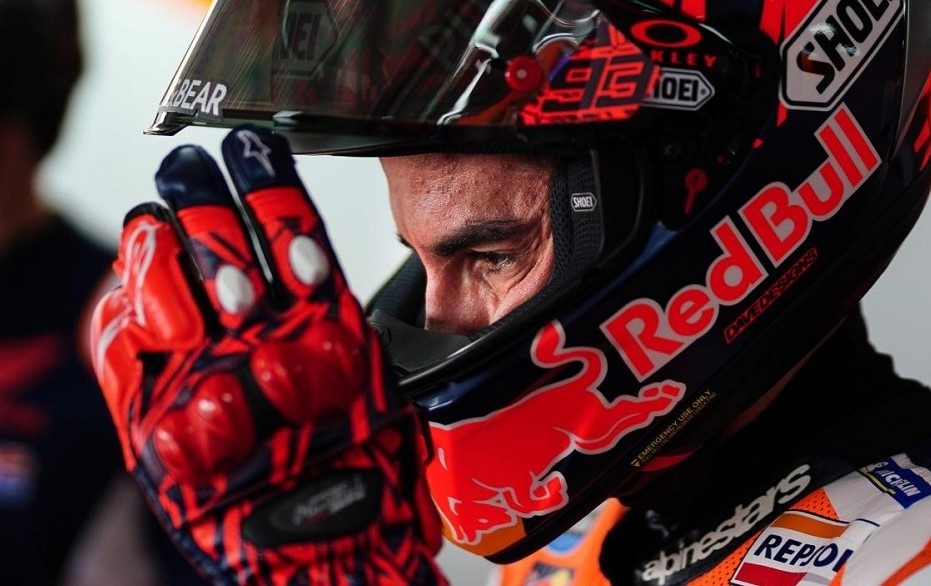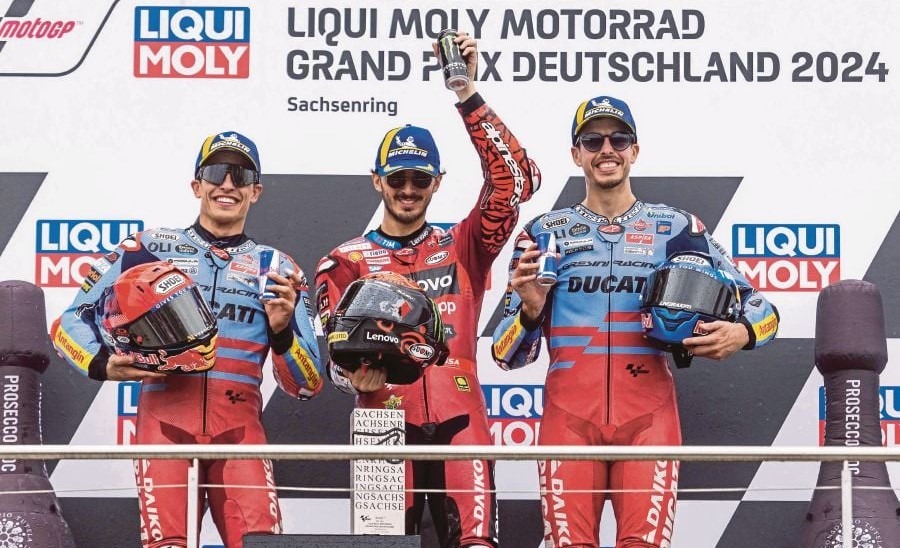Six-time MotoGP champion Marc Marquez supports the introduction of sprint races but he does have a problem with the new MotoGP weekend format for 2023.
The 2023 MotoGP schedule has been quickly updated to include a half-distance sprint race at each circuit. This quick change has significantly increased the amount of racing laps that riders can compete in during the season.
The response from riders has been conflicted; many of them acknowledge the increased entertainment but are worried about the increased physical and mental strain; modifications to rider compensation are also a problem.
The biggest issue with the new schedule for Marquez is not the extra race, but rather the effect it has on Friday practice.
In order to find a Saturday time slot for the sprint, qualifying had to be moved up to Saturday morning, skipping a practice session in the process. MotoGP extended the second Friday practice by 15 minutes to slightly offset this by taking it to 60 minutes instead of 45.
Yet, the method used to choose the 10 riders who advance automatically to the second qualifying round Q2 with only two additional seats at the time remains. This method is based on the sum of the riders’ combined practice times from the first batch of sessions.
Also, under the new format, the initial Q2 top 10 will be known at the conclusion of Friday instead of being decided nearly usually in the last few seconds of FP3 on Saturday as it did under the previous arrangement.
There was less emphasis on one-lap speed in the Friday sessions under the previous arrangement because FP3 typically provided the optimal setting for quick practice times.
There will still be an FP3, but it will take the place of the FP4 from the previous format and be run directly before qualifying. This session won’t count toward the combined practice classification and will be utilized for long runs.
“The sprint race honestly, I like it,” said Marquez ahead of Portimao season opener this weekend. “The schedule of the weekend for me, it’s too demanding for riders.”
“Because Friday is already counting for [qualifying practice] QP2, QP1 and in the end [free practice] FP2 is like a qualifying practice to go into QP2… It’s quite demanding, to have 21 races like this.”
“About the sprint race, I’m looking forward, because I think we will enjoy it, on the track and you as spectators.”
“But as Dorna said when they introduced that new schedule, of course, in the future we have that safety commission and all these things and we will adapt a little bit… We need to consider all those things.”
Marquez’s perspective is probably going to be quite well-liked due to the fact that the mechanism through which practice results dictate the makeup of qualifying rounds to such a measure is not particularly well-liked across the grid.
“I hate the combination of the practices that make the chance to go to Q2 for the top 10. I hate it!” Aprilia’s Aleix Espargaro complained when discussing rider influence on the weekend format on Thursday. “We said many times in the safety commission but it’s the rules… You have to deal with it.”
A failure to perform well in FP2 can destroy the weekend, so even though it is prolonged and qualifying is more crucial now that it selects the grid for two points-paying races, riders and teams will still feel pressure to complete set-up options and test items.
But, the trade-off is clearly obvious. The three days of track activity now have a competitive element thanks to the new format, which wasn’t truly true in the past unless there was a chance that FP3 would be affected by rain.
Carlos Ezpeleta, managing director of MotoGP, reaffirmed the same argument made by Marquez on Thursday during an appearance on the series’ official podcast Last on the Brakes, saying that Dorna won’t be too proud to take action if it becomes apparent that the format needs to be changed.
He did, however, stress that the series prefers to have a consistent weekend lineup throughout a season.
“I think that MotoGP and other motorsports, we have an incredible advantage, an incredible property but also an advantage in having the ability to shape our calendar and to have all events count the same,” Ezpeleta responded when asked why the series chose to introduce the sprint season-long rather than intermittently.
“There’s no Grand Slam and that commercially for us is huge, but also for our fans and I think it was important for us to have the same format every weekend.”
“I think it is a big part of it, people know it’s going to be Saturday and Sunday [races], you don’t forget, ‘oh, there was a sprint this weekend’.”
“I do think that it’s the right way going forward. But of course, we are not stubborn… We will react for positive change.”





